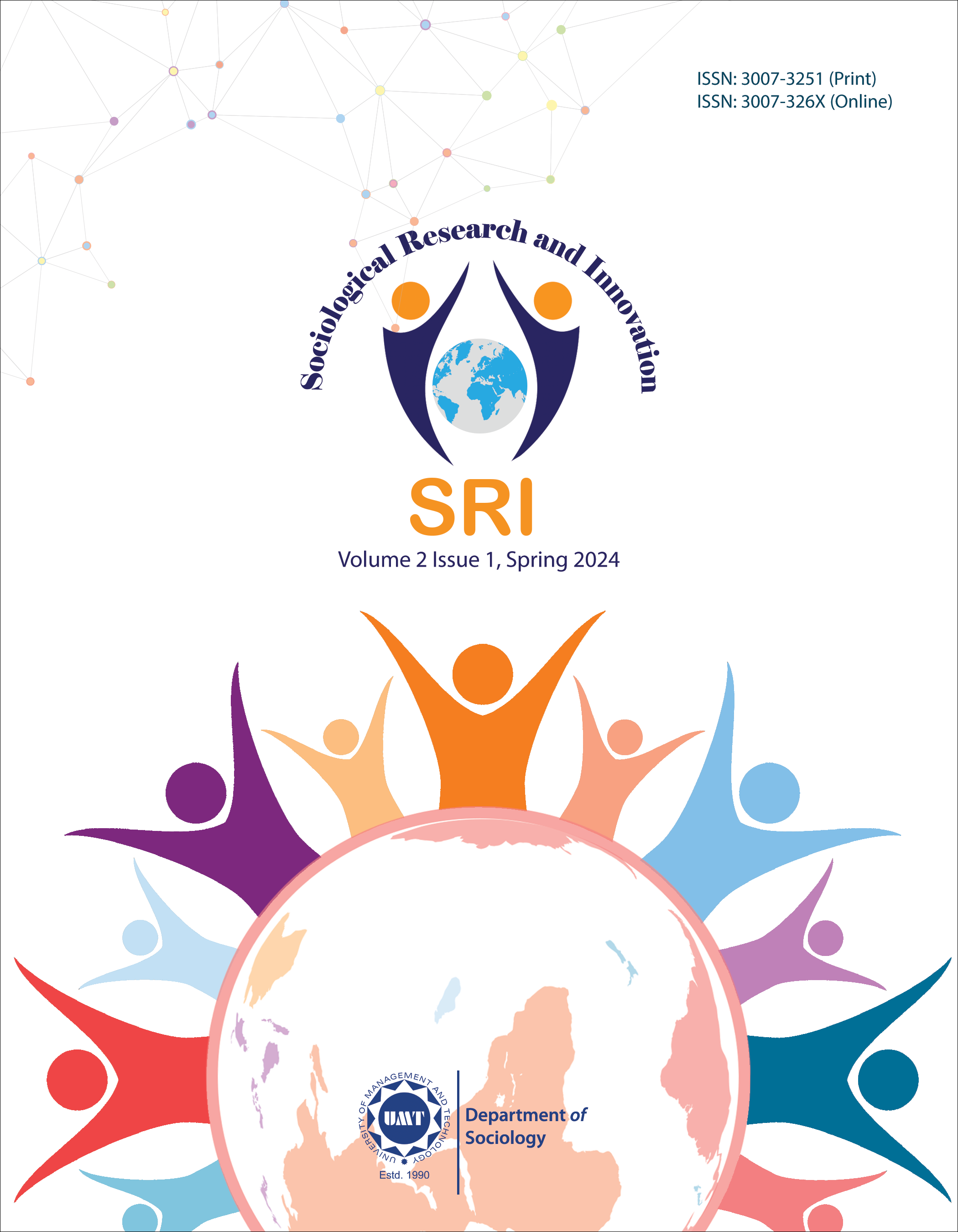Manipulated Notions of Islam Regarding Women: An Analysis of The Breadwinner by Deborah Ellis under Islamic Feminism
Abstract
 Abstract Views: 0
Abstract Views: 0
This research attempts to examine the suffocated lives of women in Afghanistan in the novel, The Breadwinner by Deborah Ellis under the lens of Islamic Feminism presented by Fatema Mernissi in Islam and Democracy. Islam has given all the fundamental rights to women. Despite being under the protection of men, women ought to have their own individuality as both genders shall stand equal for their deeds on the day of judgement. This research identifies the manipulated notions of Islam regarding women in the respective novel through the framework of Islamic feminism. The theory emphasizes that Islam allows women to celebrate their femininity, but the misinterpretation of Quranic verses has misled Muslims into believing otherwise. Thus, the research contributes to the struggle of identifying Afghan women's rights within the outside and domestic sphere which have been demolished by men, with the aid of Islamic feminism. In The Breadwinner, Taliban’s agenda is to set a religious narrative that women are submissive and they should be confined inside the four walls. In contrast, the reality is entirely opposite as Islam provides equal rights to both sexes on human grounds.
Downloads
References
Berry, K. (2003). The symbolic use of Afghan women in the war on terror. Humboldt Journal of Social Relations, 27(2), 137–160.
Da Silva, J., & de Oliveira, C. (2021). Fatema Mernissi’s writings as a gateway to postcolonial Islamic feminisms and intersectionality in the Maghreb. Revista Debates, 15(3), 133–157. https://doi.org/10.22456/1982-5269.119612
Dabhade, R. A. (2021). Suffering of the children during the Taliban regime in Deborah Ellis’ “The Breadwinner”. Epitome: International Journal of Multidisciplinary Research, 7(8), 40–43.
Ellis, D. (2001). The breadwinner. House of Anansi Press Inc.
Fahrudin. (2018). Characters and moral values in the novel “The Breadwinner” by Deborah Ellis [Unpublished thesis]. PGRI University Jakarta.
Foucault, M. (1999). Religion and culture. Manchester University Press.
Franks, M. A. (2003). Obscene undersides: Women and evil between the Taliban and the United States. Hypatia, 18(1), 135–156. https://doi.org/10.1111/j.1527-2001.2003.tb00783.x
Humanium. (n.d.). The right to health: Understanding children’s right to health. Retrieved December 12, 2023, from https://www.humanium.org/en/fundamental-rights-2/health/
Kareem, H. A., & Amjad, F. A. (2020). Human oppression and transformed religion in Deborah Ellis’ the Breadwinner. International Journal of Innovation, Creativity and Change, 12(7), 442–454.
Kennedy, C. H. (1988). Islamization in Pakistan: Implementation of the hudood ordinances. Asian Survey, 28(3), 307–316. https://doi.org/10.2307/2644489
Mernissi, F. (1975). Beyond the veil: Male-female dynamics in modern society. Indiana University Press.
Mernissi, F. (1991). The Veil and the male elite: A feminist interpretation of women’s rights in Islam. Basic Books.
Mernissi, F. (1992). Islam and democracy: Fear of the modern world. Perseus Publishing.
Prastyowati, S. (2019). The study of gender inequality found in Deborah Ellis’s novel “The Breadwinner.” Jurnal Perempuan and Anak, 2(2), 1–10. https://doi.org/10.22219/jpa.v2i2.9661
Ratnasari, E. (2015). Parvana’s struggles against gender inequality in Taliban society in Deborah Ellis’ the Breadwinner: A feminist children’s literature study. Sastra Inggris-Quill, 4(4), 293–304.
Sahih Al-Bukhari. (1997). The translation of the meanings of Sahîh Al-Bukhâri. Kazi Pubns Inc.
Copyright (c) 2024 Hafza Arshad, Sarah Azam

This work is licensed under a Creative Commons Attribution 4.0 International License.


